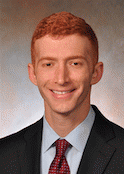My guest today is Scott Goldberg, a fourth year medical student at the University of Chicago's Pritzker School of Medicine and a board member of Physicians for a National Health Program. Welcome to OpEdNews, Scott.
JB: I understand you are helping to coordinate a national day of action, coming up soon. What can you tell us about it?
SG: Thank you for having me, Joan. Yes, I am one of the medical students from Students for a National Health Program (SNaHP) helping to plan the TenOne Medicare-for-All National Student Day of Action. SNaHP is the student section of the national organization, Physicians for a National Health Program, which has around 20,000 doctors and students who advocate for single payer health reform. The idea for TenOne came out of the SNaHP annual summit last February in Chicago. It was our 4th and largest summit thus far, with over 170 students in attendance. We had been inspired by the widespread involvement of students in the White Coats 4 Black Lives die-in that fall and we wanted to do something similar to energize and strengthen the student single payer movement. In short, TenOne is a nationwide action of medical students and allies to raise awareness about the failings of our private health insurance system and what we need to do to fix it -- which is to expand and improve Medicare to all.
JB: Before we get to the nitty gritty of the October action, can you tell us why single payer is so important to you and your fellow medical students?
SG: Well, for me, I became committed to single payer in 2009 after hearing a talk by Dr. David Himmelstein, one of the co-founders of PNHP. He presented so much evidence that national health insurance, as practiced particularly in Canada, is the most efficient, economical, and just way to provide high-quality, affordable, universal health care access. And that the United States is the only industrialized country in the world, despite our vast wealth, that doesn't have some form of universal health insurance. But it wasn't until I began medical school, and started working in the hospital, especially during my third year clinical rotations, that I saw first-hand how devastating our system is on patients' lives. I remember one Spanish-speaking woman who was unable to receive a lung transplant at our hospital because we weren't "in-network." We had to send her to another hospital after developing a trusting relationship with her. I've seen patients die because they couldn't get the care they needed in time. This just does not happen in other first-world countries. So I'm sure my fellow medical students working on this issue feel the same way as I do -- that no person, regardless of socioeconomic status, race, ethnicity, or whatever, should be denied something as fundamental to human life as medical care.
JB: Everything you say makes perfect sense to me, Scott. I covered the medical student die-in when it happened and it was an amazing statement. What kind of participation are you getting for this current action day?
SG: SNaHP now has 43 chapters at medical schools across the country. I think this is double the number just four years ago. For TenOne, we have 30 chapters participating as of now. Many of these chapters will be holding actions during the day including teach-ins and rallies. At night, all chapters will be holding a candlelight vigil remembering the approximately 25,000 people that die each year due to uninsurance and the millions more who suffer due to underinsurance. In cities like New York, Philadelphia, Chicago, Los Angeles, and Boston, a number of chapters from different schools will be working together to host one large nighttime action. Also, TenOne is sponsored by a number of other national medical student organizations including American Medical Student Association, Latino Medical Student Association, White Coats 4 Black Lives, Universities Allied for Essential Medicine, and Pre-health Dreamers. I can't think of another student-led nationwide action for single payer that has been done before.
JB: I'm curious if any of the medical schools push back against these single payer actions. Are any students fearful that their participation might affect their careers going forward?
SG: In my three years since starting a student chapter of PNHP, I've never had any push back from my medical school. In fact, I think our chapter is the most active on campus and has widespread support from the student body. Many of the faculty and administrators on campus support national health insurance (NHI) and are encouraged by our dedication to the cause. I've never heard of any other schools pushing back against single payer actions, but I can't say definitively if there have been.
I think some medical students may be anxious about throwing themselves into single payer advocacy for fear that it may affect their careers somehow. But I can say, from my own experience, that it has not affected my career thus far. And there are examples of outspoken faculty members on campus who don't face repercussions for their beliefs. This idea that speaking out for something as fundamental and urgent as universal health care is threatening to your career is something we need to dismiss. Advocating for single payer is not a Democratic or Republican issue. It is at the core of what it means to be a doctor, which is doing everything in your power to help your patients.
(Note: You can view every article as one long page if you sign up as an Advocate Member, or higher).






